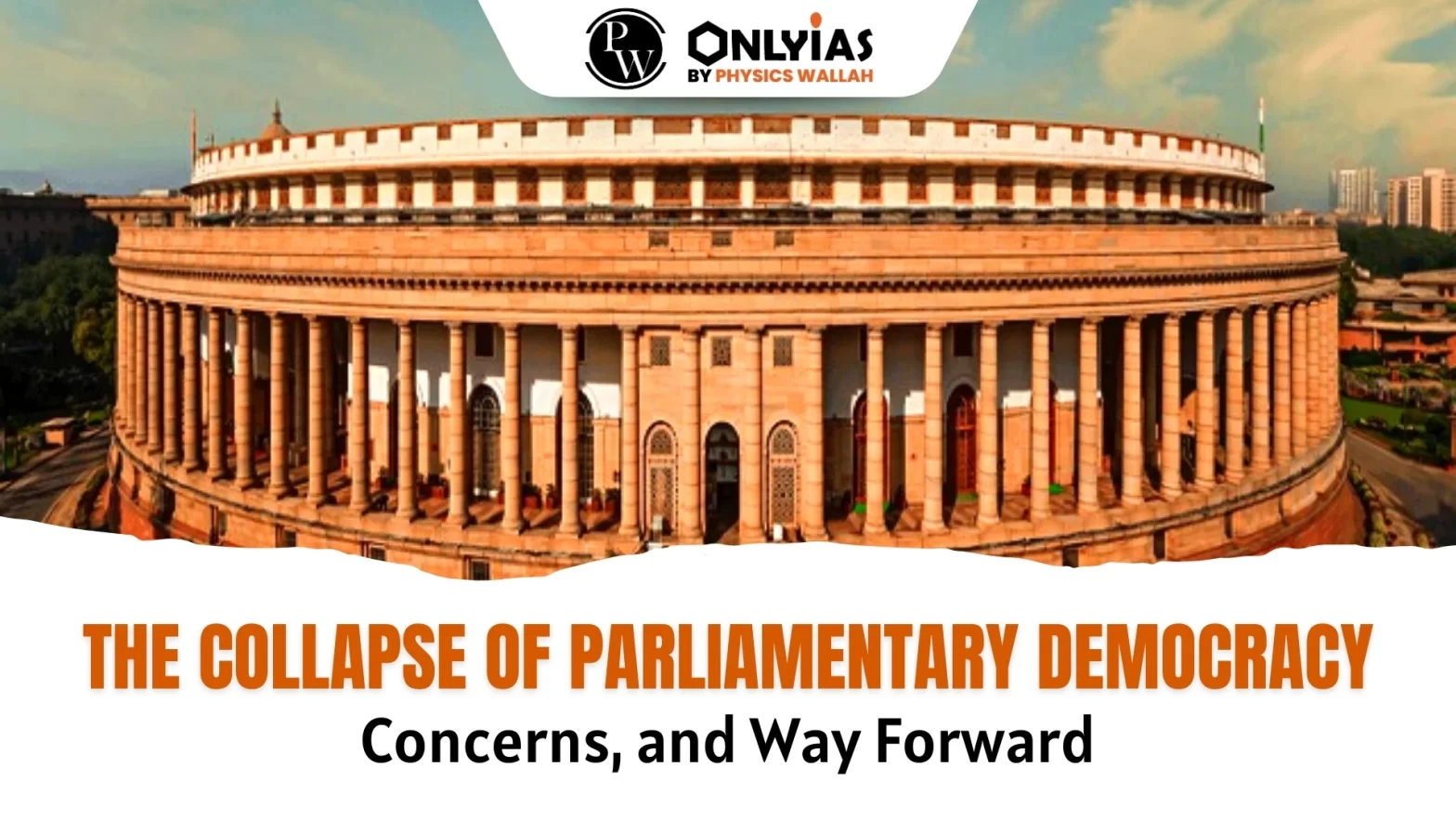Context: Recently, the Suspension of 140 Members of Parliament (MPs) has been experienced in India, which is seen by experts as a weakening of parliamentary democracy in India.
| Relevancy for Mains: The Collapse Of Parliamentary Democracy: Concerns, and Way Forward. |
The Collapse Of Parliamentary Democracy: Arising Concerns
- Loss of Parliamentary Essence: Even though the Indian Republic looks like it has a constitutional setup with rules and laws, the real power is increasingly centralized, not shared as it should be in a democracy.
- No action taken by the Supreme Court: Judiciary is tasked to protect the constitutional values, but in this suspension case no pro-active role is played by the Apex Court.
- Question on Media’s Role: Most media channels and persons, with a few honorable exceptions, either support the powerful or distract the public from important issues.
- Public Reaction: There is also not much public outrage about these issues, which might show a lack of interest in constitutional principles.
- Elections and Power Dynamics: Elections happen, but after the election, there is a little debate or accountability about government policies.
- Impact on Separation of Powers: The separation of powers (between different branches of government) is not working well. The executive (the government) and the legislature (Parliament) are becoming too merged.
- Parliamentary System is almost becoming a Parliamentary System: In the current scenario, the presidential system can be adopted (as there is almost an unprecedented concentration of power and monopolization of all organs of the state). However, neither system guarantees liberty.
- Reduction of Individual Rights: Recently passed Laws such as Criminal Code bills and the Telecommunications Bill by the government are seen as reducing individual rights and giving more power to the state.
- Concentration of Power: It is observed that the power is centered around one leader (Prime Minister) and his party, without effective limits.
- Monopolization of Power: The government is using its power for various purposes, some of which might seem good but ultimately aim to change the fundamental nature of India’s political system.
- Constitution vs. Personality: There is a concern that personality is becoming more important than constitutional principles.
Continue Reading: Legislative Decline In India
The Path Ahead to Strengthen Parliamentary Democracy
- Need of Debates and Deliberations: In Parliamentary democracy, elected legislators debate and discuss issues of public import and seek solutions to issues that affect citizens.
- There is a need for healthy debates, the utilization of parliamentary and standing committees to delve into the issue and for Bills and legislation to be discussed before any consideration.
- Need for a Powerful Opposition: To check the power of the ruling party and for mature democracy, an effective Opposition is desirable.
- Need to Maintain a Dignity: Opposition members need to play a constructive role by expressing their views in a dignified manner.
- Need to Maintain a Balance: Parliamentary Democracy works on the principle of checks and balances, which prevents democracy from becoming into majoritarianism and this significant role is maintained by the opposition party.
To read more on Suspension of MPs click here
![]() 22 Dec 2023
22 Dec 2023
